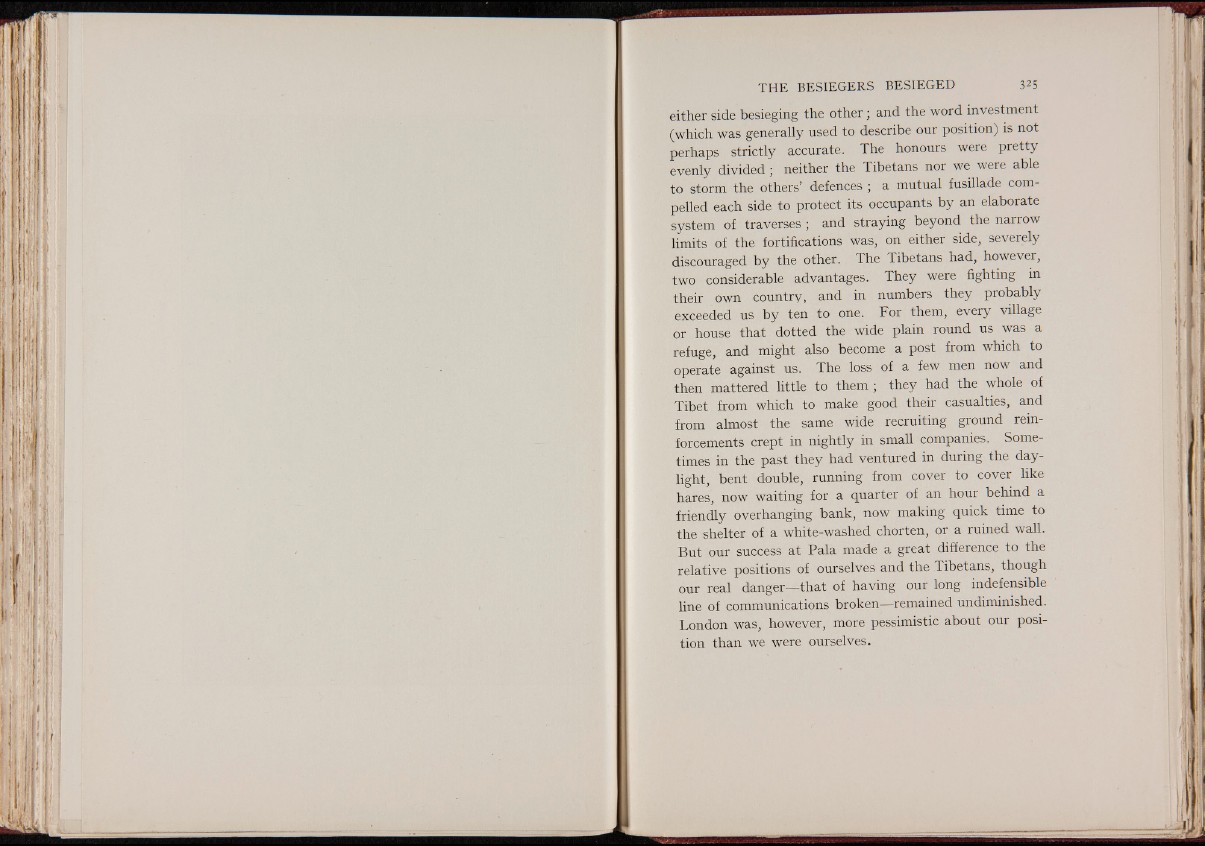
either side besieging the other; and the word investment
(which was generally used to describe our position) is not
perhaps strictly accurate. The honours were pretty
evenly divided ; neither the Tibetans nor we were able
to storm the others’ defences ; a mutual fusillade compelled
each side to protect its occupants by an elaborate
system of traverses ; and straying beyond the narrow
limits of the fortifications was, on either side, severely
discouraged by the other. The Tibetans had, however,
two considerable advantages. They were fighting in
their own country, and in numbers they probably
exceeded us by ten to one. For them, every village
or house that dotted the wide plain round us was a
refuge, and might also become a post from which to
operate against us. The loss of a few men now and
then mattered little to them; they had the whole of
Tibet from which to make good their casualties, and
from almost the same wide recruiting ground reinforcements
crept in nightly in small companies. Sometimes
in the past they had ventured in during the daylight,
bent double, running from cover to cover like
hares, now waiting for a quarter of an hour behind a
friendly overhanging bank, now making quick time to
the shelter of a white-washed chorten, or a ruined wall.
But our success at Pala made a great difference to the
relative positions of ourselves and the Tibetans, though
our real danger— that of having our long indefensible
line of communications broken— remained undiminished.
London was, however, more pessimistic about our position
than we were ourselves.